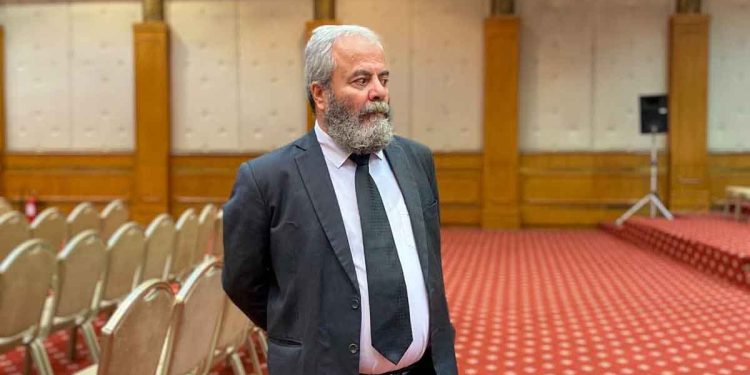Jordanian lawyer Firas al-Rousan has begun an open-ended hunger strike — refusing food, water, and medication — inside Bab al-Hawa Prison, in protest against his administrative detention order issued by the Governor of Bani Kenana, despite a judicial decision from the district’s Public Prosecutor ordering his release without detention.
Security forces arrested al-Rousan from his office in Amman last Wednesday without a judicial warrant, in a clear violation of the rule of law and the constitutional guarantees of personal liberty.
Although the Public Prosecutor of Bani Kenana decided to release him, the district governor subsequently issued an administrative detention order under the Crime Prevention Law, demanding a financial guarantee of 200,000 Jordanian dinars for both al-Rousan and his colleague Malik Nabil al-Rousan, on the grounds that they “pose a threat to public safety and cause disorder.”
This action constitutes an overreach of executive authority and a direct encroachment on the judiciary’s powers. The Crime Prevention Law grants administrative governors broad powers to detain individuals and restrict their freedom without specific criminal charges, effectively undermining judicial oversight.
The use of this law in such a manner empties the principle of separation of powers of its substance and undermines the independence of the judiciary, which is the primary safeguard for rights and freedoms in any state governed by the rule of law.
Administrative detention also violates Article 7 of the Jordanian Constitution, which stipulates that “personal freedom is protected and shall not be restricted except in accordance with the provisions of the law and by a decision from a competent judicial authority.”
The recourse to executive detention orders against individuals already cleared by the judiciary amounts to a circumvention of court rulings, contradicting fundamental principles of justice and the rule of law.
Al-Rousan’s detention further contravenes Jordan’s international obligations under the International Covenant on Civil and Political Rights, which guarantees the right to liberty and security of person and prohibits arbitrary arrest or detention under any pretext. The Covenant also requires that any person deprived of liberty must have the right to judicial review to determine the legality of their detention — a safeguard absent in administrative detention cases.
This incident once again highlights how the Crime Prevention Law has effectively become an instrument of executive control, used to bypass judicial authority and restrict public freedoms. While officials justify its use as a “preventive measure” for maintaining public order, its vague provisions allow it to be deployed as a tool of political or social repression, particularly against lawyers, activists, and journalists.
The continued use of this approach sets a dangerous precedent that undermines trust in the justice system and opens the door to arbitrary detention, in violation of both the Jordanian Constitution and the principles of a state governed by law.
This situation necessitates the immediate release of lawyer Firas al-Rousan, full respect for judicial decisions, and the initiation of a serious national dialogue to reform the legal framework in a way that guarantees the protection of public freedoms and prevents the recurrence of such violations in the future.


























